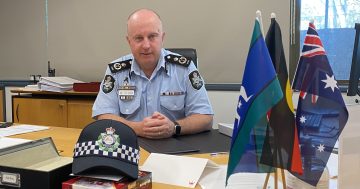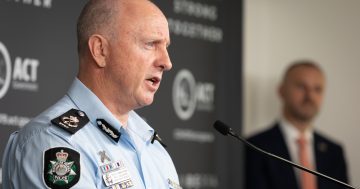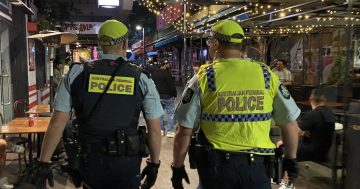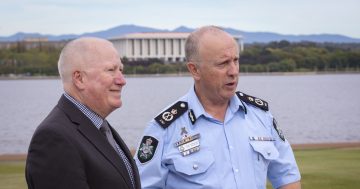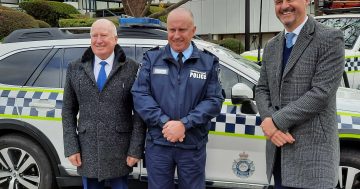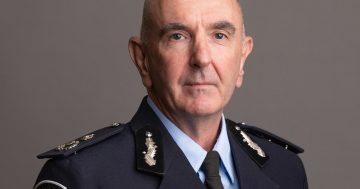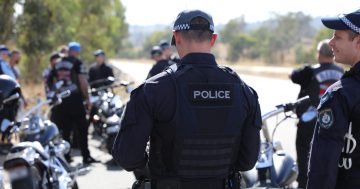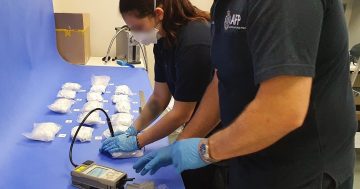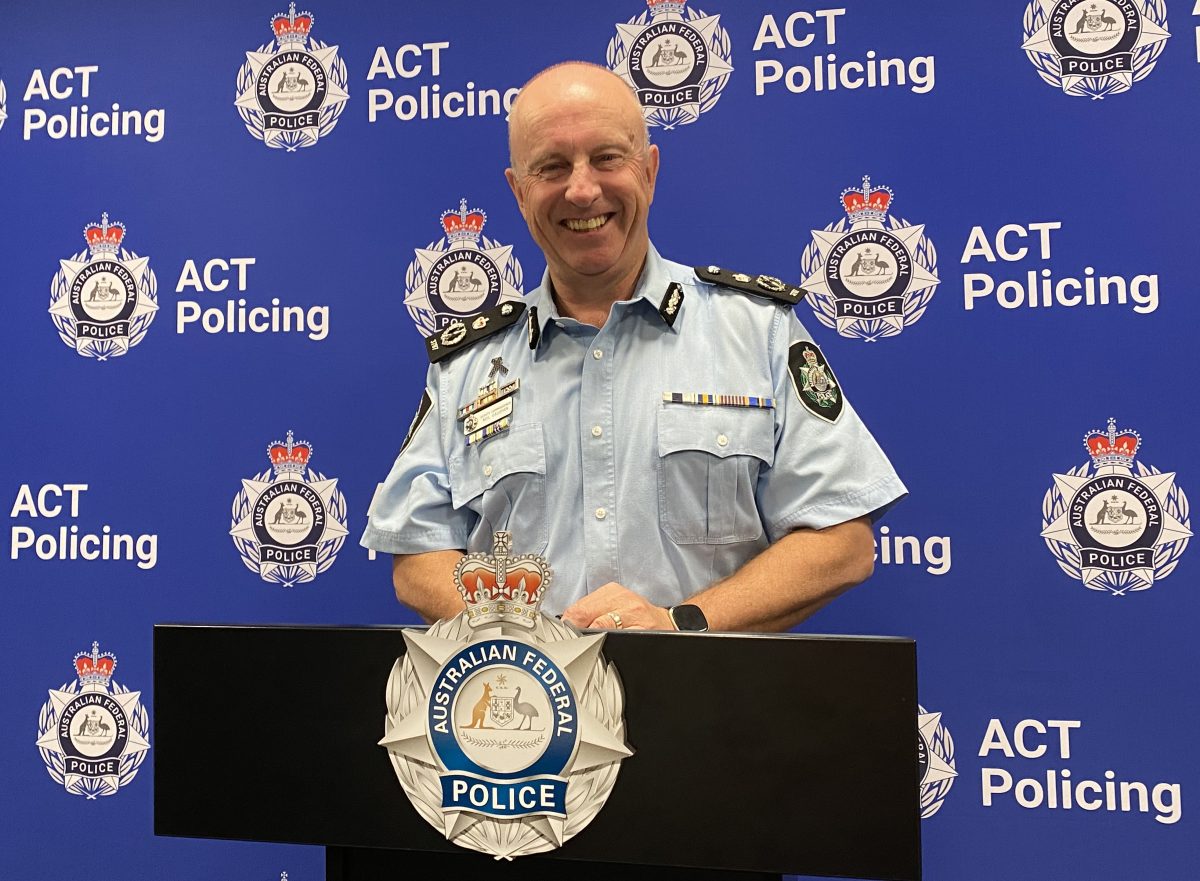
Retiring Chief Police Officer Neil Gaughan is proud of what he – and ACT Policing officers – have achieved in the past four years. Photo: Claire Fenwicke.
Infrastructure issues, support for kids left behind by raising the minimum age of criminal responsibility, and police officers attending mental health incidents are some of the challenges awaiting ACT Policing’s new Chief Police Officer (CPO).
AFP Deputy Commissioner Neil Gaughan is retiring from the top job on 22 March after almost four years guiding Canberra’s police force.
He’s always viewed three to five years as the “sweet spot” for senior executive roles, so he felt the time was right to hang up the badge.
“I’d achieved a fair bit but I think it’s also important that someone else now comes in. Mentally, I was ready to go, and I feel very privileged and lucky to go on my own terms,” CPO Gaughan said.
He’s achieved a lot to be proud of in that time – establishing the Unsolved Homicide Team, improving training and resources for the Sexual Assault and Child Abuse Team (SACAT) and negotiating with the ACT Government to get an extra 40 officers each year over the next two financial years.
The number of police officers who identify as Aboriginal or Torres Strait Islander has increased, and women now make up more than 40 per cent of the ACT’s force.
CPO Gaughan also helped guide Canberra through the COVID-19 pandemic.
“I think the fact that we work well as a police force, and we weren’t overbearing or over-the-top, we policed it appropriately (unlike maybe some other jurisdictions). I think we got the mix right,” he said.
Body-worn cameras were also introduced under his watch and are now worn by every officer.
They’re turned on about 30 to 40 times each shift, and CPO Gaughan felt they had positively changed both officer and community behaviour.
There have recently been cases before the courts involving instances of officers behaving inappropriately, which he felt was a good thing to catch.
“We reinforce to our people all the time that the camera’s on, so be very careful about how you behave and behave appropriately. Use your powers appropriately. Don’t overstep the mark. Don’t use force when you don’t need to,” CPO Gaughan said.
“The sooner we can identify an issue, the sooner we can take action.”
He said the force would continue to “clamp down” on officers caught doing the wrong thing but admitted transparency could be improved.
“We need to make sure we’re meeting community expectations in [communicating action taken against officers], and I think we’re getting better in relation to the fact that now we do put out releases when police officers are arrested. There’s been a change of policy nationally for the AFP to do that,” he said.
“I think that ultimately sometimes we can also be quicker with our press releases about things not involving police officers too.”
Some issues remain, including the state of Canberra’s police stations.
CPO Gaughan has campaigned for improved buildings since he started, and with 40 per cent of the ACT’s policing infrastructure offline with the closure of City Police Station’s ground floor and the Gungahlin Joint Emergency Services Centre, things need to move faster.
“I’d actually like to see a sod turned and footings built. That’s the next step. We need to stop talking about it and we need to start doing it,” he said.
“It impacts on morale – the fact that you’ve been shafted out of your police station to go work somewhere else is not good.”
While there has been movement to increase the number of officers on the ground, CPO Gaughan also felt more needed to be done.
He explained that while the ACT’s population is about 480,000 people, that swells to about 540,000 during the day due to people from surrounding areas coming to Canberra for work and education.
“We are policing for well over half a million people at least five days a week … we need more police to actually keep the Canberra community safe.”
Challenges have continued following the raising of the minimum age of criminal responsibility.
CPO Gaughan said he felt the supports still weren’t in place or weren’t adequate enough to help those under the age of 12 who are coming to the attention of the police.
“We have a number of 11-year-olds committing crimes, and we’re out of business, so someone else has to look after them,” he said.
“In 12 months’ time, when that [age limit] goes to 14, those kids will be 12 or 13. They’re going to continue to cause drama, so we need to ensure that the resources for others are adequate to address that.”
He also wants to see more movement around incidents regarding mental health.
“It’s not a policing responsibility. We shouldn’t be sending blue shirts to a white shirt problem, and there’s a national conversation about this,” CPO Gaughan said.
“We should only go if literally someone is about to take their own life or someone else’s, because [officers attending] is not the best solution.”
CPO Gaughan will be on long service leave until November and will stay in Canberra for now.
Assistant Commissioner Scott Lee, who has been leading the AFP’s Cyber Command for the past year, will serve as the interim CPO.
Ultimately, CPO Gaughan said he was incredibly proud of ACT Policing’s officers and felt he was leaving Canberra in capable hands.
“The dedication, the commitment, the resilience they show daily – I think a lot of people don’t realise what they actually see and do, and you can’t unsee what they see,” he said.
“But the fact they keep turning up to work every day, I think we’re very lucky that we’ve got people committed to policing.”












